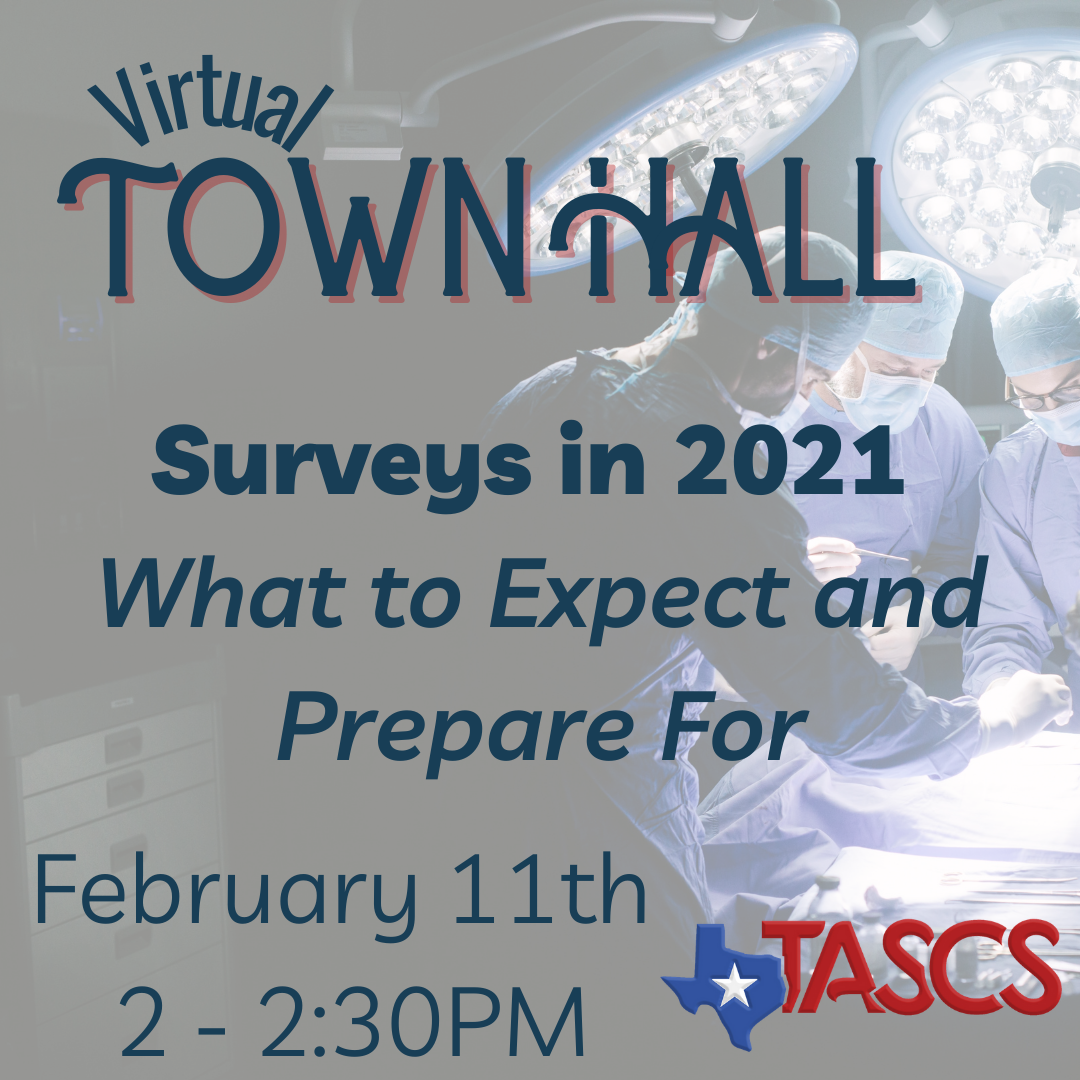In order to provide members with information and education, even in the midst of a pandemic, the Texas Ambulatory Surgery Center Society (TASCS) has been holding virtual town halls. The latest one took place on Jan. 28 and was about controlled medication logs in ambulatory surgery centers.
It was a focused, brief, yet very informative symposium from two of Texas’ top experts on the topic, Diane Buffington of Surgical Care Affiliates and Chris Dembny of Dembny Pharmacy Consultants LLC.
 |
 |
To begin, Buffington stated, “Narcotics are going missing more these days, and we need to ensure we’re doing everything we can to protect ourselves and our patients.”
Therefore, she shared best practices to keep controlled substance inventories and staff members safe. One of the areas she brought up as a frequent opportunity for improvement is having a crystal clear chain of custody from person to person. Some examples include documenting when controlled substances:
- arrive to facilities
- are signed in by two nurses or licensed individuals to continuing inventory logs
- are added into physical inventories with a witness
- are given to anesthesia providers in a daily tackle box with a certain number of narcotics each day.
- If this is stocked ahead of time, it should be stocked by two nurses.
- Include the Controlled Substance Administration Records (CSAR) in the box.
- If you can, install a breakaway on the outside.
- When the box is given to an anesthesia provider, it can be done by one nurse, with a log stating box #1 went to Dr. X at date/time.
- When the box is returned, require a signature stating the date/time of box #1 being returned by Dr. X.
- Within the box, there should be a place for the doctor to acknowledge what they have received.
Another opportunity Buffington suggested was that if the medication is being returned to stock, two nurses should be handling this, whether it’s restocking anesthesia tackle boxes or returning it to main stock. She has fine-tuned documents/logs for all of this that she is happy to share.
Dembny spoke about what needs to be on every CSAR consistently. The Drug Enforcement Administration says to have a reproducible audit trail of any incoming or outgoing inventory, and the Texas State Board of Pharmacy provides more specifics:
- date administered
- time administered
- patient's name (medical record number also helps here)
- name of drug, dosage form and strength
- amount administered
- amount wasted, if any
- signature of person administering drug (initials are not enough)
- signature of person witnessing the waste
- practitioner's name who ordered the drug
This needs to be utilized any time a controlled substance is administered to a patient and kept separate of patient charts.
At the end of the virtual town hall, attendees were then able to address the speakers with questions and comments. TASCS Board Member James McClung asked if anyone was using cameras in pharmacy areas and stated it has been a key for control. He also provided an example of finding diversion from medications in the Post Anesthesia Care Unit (PACU); the issues were identified when medications were taken out of PACU and those nurses needed sign off from anesthesia doctors.

The question was asked, “What about a Pyxis in your ASC?” It sounds like a great solution but is also very expensive and labor intensive. In most ASCs, there is not enough pharmacy staff to monitor this system, and that excessive labor falls on nurses.
A final discussion was if Propofol should be handled like a controlled substance. Buffington and Dembny both commented that while it’s not identified as a controlled substance by the DEA, it certainly doesn’t hurt to track it.
If you have additional thoughts on the topic of CSAR, leave a comment below. If you have questions for the speakers, feel free to reach out to either of them:
Christopher M. Dembny R.Ph.
Dembny Pharmacy Consultants LLC
(469)222-4794
[email protected]
Dianne Buffington, BSN, RN, CNOR, CNAMB
Surgical Care Affiliates, Director, Clinical Services
(214)914-8379
[email protected]
TASCS is dedicated to providing continuing education, so stay tuned for the next virtual town hall! Additionally, if you have an article you think would benefit the ASC community, email your ideas to [email protected].
TAKE OUR MEMBERSHIP POLL!
Take the quick and easy poll here.


